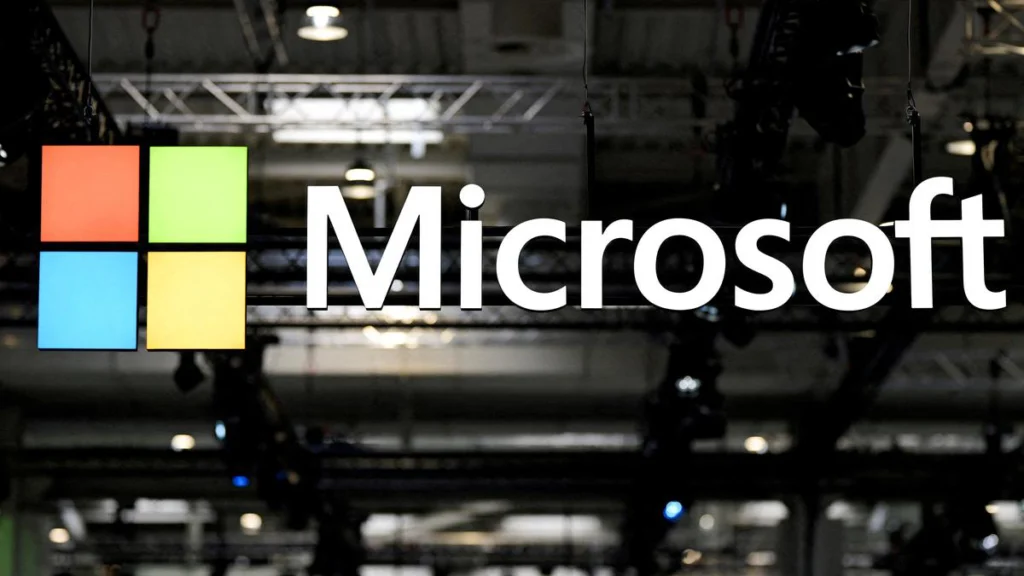Microsoft planning thousands of job cuts aimed at salespeople

Microsoft Plans Major Job Cuts Focused on Sales Amid AI Investments
Microsoft is preparing to announce significant job cuts early next month, following the end of its fiscal year. The layoffs, expected to affect thousands of employees, will mainly impact the sales department. This move comes as Microsoft focuses on streamlining its workforce while investing heavily in artificial intelligence (AI).
The Shift Toward Automation and AI
Microsoft is rethinking its workforce needs as the company focuses more on automation and AI. The company’s shift toward these technologies has made it clear that AI can handle many tasks traditionally performed by human workers, especially in sales. Companies like Microsoft are discovering that they can reduce costs and improve efficiency by relying on AI tools.
With AI playing a key role in improving customer engagement, sales, and marketing, Microsoft recognizes the need to adapt. By automating tasks like customer service and marketing, companies can streamline their operations. As a result, the need for a large, traditional sales force has decreased. Microsoft is shifting its focus toward a more tech-driven approach to sales, leveraging AI’s capabilities to predict purchasing behavior and deliver tailored messages.
Microsoft’s Long-Term Strategy
The layoffs are not just about reducing the workforce; they’re part of Microsoft’s broader strategy to invest in future growth. The company aims to stay competitive in the rapidly evolving tech industry by positioning itself as a leader in AI. As automation and machine learning continue to improve, companies that don’t embrace these technologies will struggle to remain competitive.
By investing in AI, Microsoft can create new products, enhance existing offerings, and remain ahead of its competitors. This shift in focus will allow Microsoft to innovate and create solutions for industries across the board. The company is betting on AI not just for cost savings but as a way to drive growth and market leadership.
The Sales Workforce and Changing Industry Dynamics
Traditionally, sales teams have played a crucial role in driving company revenue. Salespeople engage with customers, promote products, and close deals. However, AI-driven tools are now able to handle many of these tasks more efficiently. Microsoft’s shift reflects a broader trend in the tech industry, where companies are rethinking the value of large sales teams. Instead, they are investing in AI solutions that automate customer interactions and optimize the sales process.
AI tools enable companies to understand customer needs better, deliver personalized messages, and even predict what products customers are likely to purchase. As AI becomes more sophisticated, businesses are realizing that they can accomplish much of this with fewer human employees.
The Impact on Affected Employees
The job cuts will have real-world consequences for the employees who are laid off. Microsoft will need to provide severance packages, outplacement services, and retraining programs to help affected workers transition. Finding new roles, particularly in the tech sector, may not be easy for those who lose their jobs. However, companies in the tech industry are looking for workers with skills in emerging technologies like AI, data analytics, and machine learning, and workers may need to develop new expertise to stay competitive.
Microsoft, like many other tech companies, faces the challenge of managing the impact of these changes. It is important for the company to offer support during the transition, especially for those affected by the layoffs. Offering training and resources to help employees learn new skills will help them adapt to the changing demands of the workforce.
The Industry’s Broader Trend Toward AI
Microsoft is not the only company making such changes. Other tech giants are also embracing AI and automation as part of their long-term strategies. AI’s ability to improve efficiency and reduce costs is driving its adoption across industries. Companies are increasingly investing in AI tools that can perform tasks traditionally done by humans, including marketing, customer service, and even sales.
This trend toward automation is likely to continue as AI evolves and becomes even more capable. For Microsoft, this represents an opportunity to stay at the forefront of the tech industry. As AI continues to shape the way businesses operate, Microsoft’s investment in these technologies will likely help the company remain competitive in a rapidly changing market.
Adapting to New Roles and Responsibilities
For employees who remain at Microsoft, the shift toward AI and automation will likely mean changes in their roles. They may need to adapt to working alongside AI tools, learning new skills, or even transitioning to new positions. Microsoft has a history of supporting employees through such transitions by providing resources and training to help them stay relevant in the job market.
As AI continues to become more integrated into business processes, workers will need to embrace new technologies to stay competitive. This shift will require workers to develop new skill sets and become more comfortable with AI tools that will augment their work.
Microsoft’s Future Focus on AI and Growth
The decision to cut jobs in the sales division is part of Microsoft’s broader plan to focus on AI and automation. The company is investing heavily in these technologies to drive growth and stay ahead of competitors like Google and Amazon, both of which have also made significant investments in AI. Microsoft’s focus on AI represents its commitment to shaping the future of technology and positioning itself as a leader in the industry.
The layoffs, while unfortunate for those affected, are a strategic decision aimed at ensuring long-term success for the company. By reducing costs and focusing on automation, Microsoft aims to create a more efficient and innovative workforce that will drive the company’s growth in the future.






